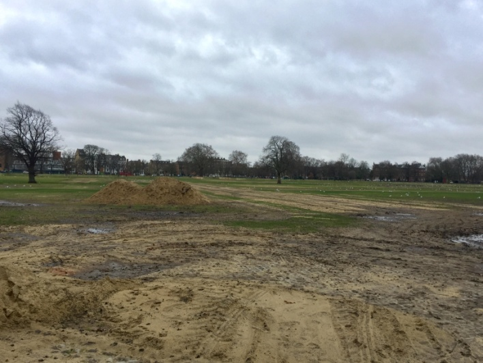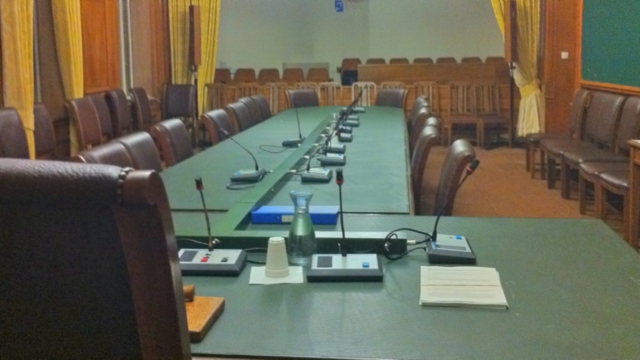Wandsworth Council’s proposed changes to its Parks Events Policy—relaxing restrictions on event size, timing, and noise while adding new environmental safeguards—have reignited debate over commercialisation, transparency, and public access. These concerns echo similar controversies in other London boroughs and nationwide, as communities across the UK challenge the increasing use of public parks for large-scale, profit-driven events
From the end of April to the middle of May, Wandsworth Council consulted on its draft Events in Parks Policy. The updated policy aims to enhance the borough’s cultural offerings as part of the Welcome to Wandsworth 2025 celebration.
It will apply to all council parks, commons, and open spaces in Wandsworth, excluding Battersea Park where a separate existing policy exists. In addition, Clapham Common is managed by Lambeth council (although Wandsworth must be consulted).
Councillor Judi Gasser, Cabinet Member for the Environment (until the recent cabinet reshuffle – see later in this article), explained to CJI in February that the initiative connects to Wandsworth’s Borough of Culture festivities, scheduled to run from April 2025 to March 2026 and which they want to be enjoyed across the borough. She also confirmed that the aim was to facilitate the organisation of more cultural and community events beyond this period, as part of the Borough of Culture year’s ‘legacy’.
What are the proposed changes
The proposed updates will allow more winter events (between 30 September and 1 April) which should be assessed on a case-by-case basis. The policy relaxes several rules, including permitting some events to finish after 10pm (while the existing policy strictly restrict the timing), no defining a specific limit on event sizes (before it was a maximum of 10,000 people), number of days for restrictions extending to the set up and dismantling of structure. Unlike what the Council press release suggests, the noise impact has also been relaxed and strict values removed: it talks now only about minimising the noise impact.
However, the new policy is also introducing tighter requirements for environmental impact. Events will be forbidden not only on sites of specific ecological importance but also on areas immediately adjacent to them. It mandates discounted tickets for low-income residents at paid events and specifies that future material amendments shall only proceed if approved by the council’s Cabinet following public consultation..
Judi Gasser told CJI:
“The draft policy was written by officers. It is stronger on protecting the green spaces and biodiversity and has a different- tougher- way of measuring noise.
The number of events/days has not been increased from the 2014 policy. I think people were not aware of what was in that because it was never fully used.”
A small caveat: an event where application is mandatory is for 30 people or more. So, try not to organise your big birthday party with too many friends attending or it might cause issue with the new rules.
The policy revision follows feedback from residents during the London Borough of Culture programme development, explained the Council, when many expressed interest in seeing more cultural and community events in parks across all areas of Wandsworth.
Following the consultation closure, the Council is now analysing the feedback, They will produce a summary report of key themes and concerns, and refine the final policy accordingly.
Events on parks is a very sensitive matter
It does not come as a surprise that the Conservatives have set up a petition in opposition to the change. However, some residents have criticised what they call the “giant hypocrisy of the Tories acting holier-than-thou, while they had to be stopped using Battersea Park as a car racing track!” Many still remember that the Tory administration allowed Formula E races in Battersea park a decade ago, creating outrage and prompting Conservative Cabinet member Cllr James Cousins to resign in protest.
Nevertheless, even Labour supporters are not happy with the proposal. Julia, a local resident living in between the commons said:
“Parks and Commons are for the enjoyment of nature and in London particularly valuable with so many people without gardens and living in cramped flats; they are needed to keep people sane! They need your protection not the opposite.
I have noticed that the lakes this year plus the one by Bolingbroke Grove are very lacking in the usual abundant wildlife. No swans at all. I am told swans choose where they live and I guess that applies to all flying creatures and very sadly they are not choosing our ponds at the moment. WHY? Certainly they won’t come to an area of disruption by EVENTS.
Wandsworth Common is small it hosts wildlife or tries to. Please leave it alone and then perhaps the swans will come back.”

Previous attempt to revise park policy for commercial events still fresh in memory
The council’s current consultation comes against the backdrop of a damaging controversy from earlier this year that forced Labour councillors into an embarrassing climbdown over plans to commercialise the borough’s green spaces.

The row erupted when residents discovered mysterious notices pinned to trees across Wandsworth’s parks, revealing that the council had quietly applied for commercial events licences without any public consultation. The proposals outlined significant changes: up to 23 events across 26 days each year on Wandsworth Common alone, with three-day festivals for 10,000 people and live music until midnight.
News spread rapidly through email lists and WhatsApp groups as locals spotted the ominous tree-mounted notices. Within days, local societies had mobilised, hundreds of objections poured in, and a campaign group formed.
The public backlash proved devastating. Within just two weeks, the council performed a spectacular about-face, withdrawing all applications through their parks contractor Enable, who issued a grovelling apology citing respect for “residents’ voices and feedback.”
The episode was particularly damaging for Labour councillors, whose 2022 manifesto had explicitly promised “Parks are for people, not corporate events” — a direct attack on the previous Conservative administration (again, remember Formula E in Battersea Park). Yet here they were proposing the most extensive commercialisation of green spaces in the borough’s history.
Following the controversy, Councillor Gasser claimed the licences were submitted by Enable, “without [her] knowledge” and insisted the initiative connected to Wandsworth’s Borough of Culture celebrations. However, her explanations raised further questions about oversight and accountability, particularly given that the Council had requested an exploration into the possibility of organising more events in Wandsworth’s parks.
The affair left lasting damage to the council’s credibility, with residents condemning the complete absence of democratic process — no consultation, no transparency, no explanation.
The hastily-formed Protect Wandsworth’s Parks campaign group remains active, recognising that while this battle was won, the underlying financial pressures that drove the original proposals haven’t disappeared and they will be watching the result of the current consultation closely.
Cabinet member in charge of green spaces moved during cabinet reshuffle
There has been speculation that the fallout from the parks commercialisation controversy may have played a role in Councillor Judi Gasser’s move from the environment to children portfolio in the recent cabinet reshuffle, although the council has not confirmed any connection between the two.
Gasser, who had been Cabinet Member for the Environment, has been replaced by Paul White, the former chair of the housing committee. Her removal is particularly striking given that she had been a prominent figure in the previous cabinet, successfully implementing several high-profile environmental initiatives.
Under her leadership, the council rolled out borough-wide food waste collection from June 2024—a key Labour manifesto pledge that had proven “more challenging than initially anticipated,” as she told CJI in an interview at the beginning of her cabinet tenure in March 2023.
- Read our interview with Judi Gasser: My idea was to listen to people: How Judi Gasser is pushing through her agenda for environment
- Read: Food waste collection is coming to Clapham Junction
She also extended the popular mega skip schemes, providing monthly opportunities for residents to dispose of bulky items for free to combat fly-tipping. More recently, two free bulky waste collections a year have been offered to every household in the borough (in addition to the normal collections and the Mega Skip Days), on the model of the chemical collection organised by the City of London.
The cabinet reshuffle comes amid growing tensions within Simon Hogg’s administration following his recent survival of a leadership challenge from Kate Stock (the former cabinet member for children), as reported by Putney.News. The local news site, established in early 2024 by Putney resident and journalist Kieren McCarthy (and former Libdems candidate in Putney), revealed that Hogg secured just 21 votes to Stock’s 13 in the leadership contest—a narrow margin for an incumbent leader.
Cllr Gasser was one of two senior cabinet members—alongside leadership challenger Kate Stock—absent from Hogg’s previous cabinet meeting, a detail noted by local Putney media amid ongoing discussion of internal party dynamics. Some observers have attributed Gasser’s reassignment to recent controversies. While she denies that she acted against Simon Hogg’s leadership, she does not explicitly state that leaving the environment portfolio was her own decision, saying:
“I fully support Simon [Hogg]; I missed the Cabinet meeting because I was unwell. I am honoured to take on the role of Cabinet Member for Children; I think helping all our children to thrive and make the most of what Wandsworth has to offer is a vitally important role.”
Regardless of any connection between Gasser’s departure from the environment brief and the fallout over parks commercialisation, questions remain as to whether the underlying financial pressures that prompted the original proposals will be addressed.
Cllr White now inherits a sensitive dossier, taking charge of green spaces policy at a time when public trust has been severely damaged and vigilant campaign groups remain ready to mobilise against any future attempts to commercialise the borough’s parks.
In Lambeth, the Labour Council ignores resident concerns and circumvents a court ruling
Wandsworth’s parks commercialisation controversy shares some similarities with its neighbouring Labour council in Lambeth, where similar attempts to turn green spaces into commercial venues have led to even more dramatic legal consequences.
The irony is particularly stark given that Wandsworth Council itself formally objected to Lambeth’s plans to host more music festivals on Clapham Common just a few years ago. In 2016, according to the Evening Standard, Wandsworth chiefs blasted Lambeth’s new events strategy which also included relaxed noise restrictions. At the time, Conservatives councillor Jonathan Cook accusing Lambeth of disguising opposition and keeping “the public in the dark.”
However, while the parks commercialisation controversy could suggest genuine administrative error in Wandsworth, the situation in Lambeth seems to imply deliberate disregard for legal process.
- Read our article: Winterville keen to return to Clapham Common in 2020, on Wandsworth side
As reported by local media BrixtonBuzz, Lambeth Council very recently faced a full-blown legal crisis after the High Court ruled that its series of commercial festivals in Brockwell Park—including Wide Awake, City Splash, and Mighty Hoopla—lacked the necessary planning permission and were therefore unlawful. The judge clarified that the decision was about the lawfulness of the certificate, and that operational decisions on events remain with the council as the planning authority
The ruling came just days before the first Brockwell Live event was due to begin, following a judicial review brought by local residents group Protect Brockwell Park.
One member of the group, Jen Hawkins, told the Daily Express:
“It’s such a shame that they use our beautiful public space as a cash cow. Loss of public access, damage to nature and the council’s lack of transparency and consultation. They are the three key points.”
It was claimed that Lambeth employed delay tactics to avoid scrutiny, only making planning decisions at the last possible moment and granting event licences using ‘special urgency’ procedures that bypass Full Council examination. The strategy was designed to reduce opportunities for meaningful opposition—residents can’t challenge planning decisions that haven’t been made.

Despite the ruling, which determined that the 3.3 metre high fencing around the park and the planned use of the land was unlawful due to the festivals running for 37 days, exceeding the 28-day limit for temporary use, the organisers of the event, Brockwell Live, have appeared to simply ignore the High Court decision.
In a statement posted on social media, the festival organisers confirmed that “all events in the series will go ahead as planned,” dismissing Friday’s judgment as dealing with “a particular point of law” about administrative processes. They insisted that “no event will be cancelled as a result of the High Court’s decision,” in apparent disregard of the High Court’s ruling.
In order to circumvent the decision, Lambeth council issued a new “certificate of lawfulness” on the day just before the start of the festival, simply stating that the use of part of the park for the summer events is lawful. A Lambeth Council spokesperson said: “The application for the new certificate of lawfulness follows the High Court ruling last week on the previous certificate which was submitted in a different context and format.“
Eventually, they published as statement on the start of the event. Councillor Donatus Anyanwu, Lambeth’s Cabinet Member for Stronger Communities, said:
“The council acknowledges last week’s decision by the High Court and is reflecting on our processes relating to events in our parks. However, we have also seen inaccurate commentary that suggests that the judgment renders all events in our parks unlawful and this is just not true.
I recognise that that there are strong feelings on all sides in our local community about these events and we continue to seek a middle ground that enables a fantastic programme of events to take place in a section of the park, whilst making sure the entire park remains open for the rest of the year, including over the school summer holidays.”














